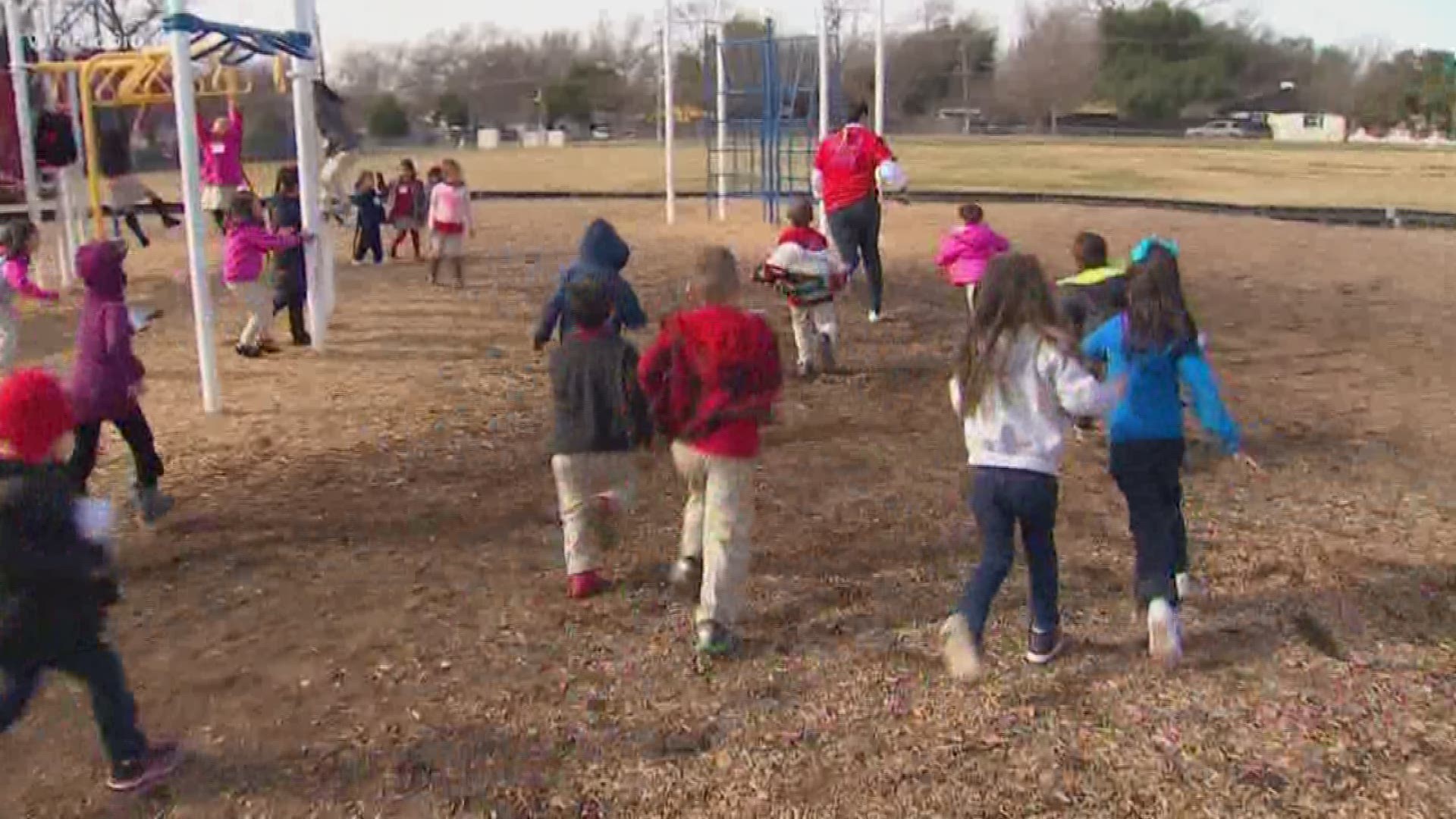DALLAS — With students now heading back to school, parents and teachers are about to get pretty serious about how kids do in class. But how serious should we be about play?
What I'm talking about is recess. And what I want to know if recess has long-term benefits for kids?
For answers I'm jumping into published research and talking to Professor Matt Bowers at the University of Texas. He's a PhD who focuses on the importance of kids and play.
“Are there long-term benefits, for kids, for having recess?” I asked him.
“Absolutely. Yeah,” he said.
The American Academy of Pediatrics has a formal position on recess. That it's a "crucial and necessary component of a child’s development" with "cognitive, social, emotional, and physical benefits."
“Kids can only sit and focus on something for so long. So to get them up, move them around, shift their brain a little bit and come back to something actually has a lot of benefits with regard to how kids, developmentally, can learn,” Powers said.
Let's look at a few of those benefits:
- The Centers for Disease Control says, “There is substantial evidence that physical activity can help improve academic achievement, including grades and standardized test scores.”
- And this article, in the Journal Pediatrics, found the teachers of kids who get some recess gave "...better teacher's ratings of class behavior…"
“Play is the work of childhood. It's where we actually develop and where we become the things we need to become in order to be successful functioning adults,” Bowers said.
So, does recess have long-term benefits for kids? The answer is a huge yes.
Now who's up for some dodge ball?
Got something you want verified, send an email to david@verifytv.com

